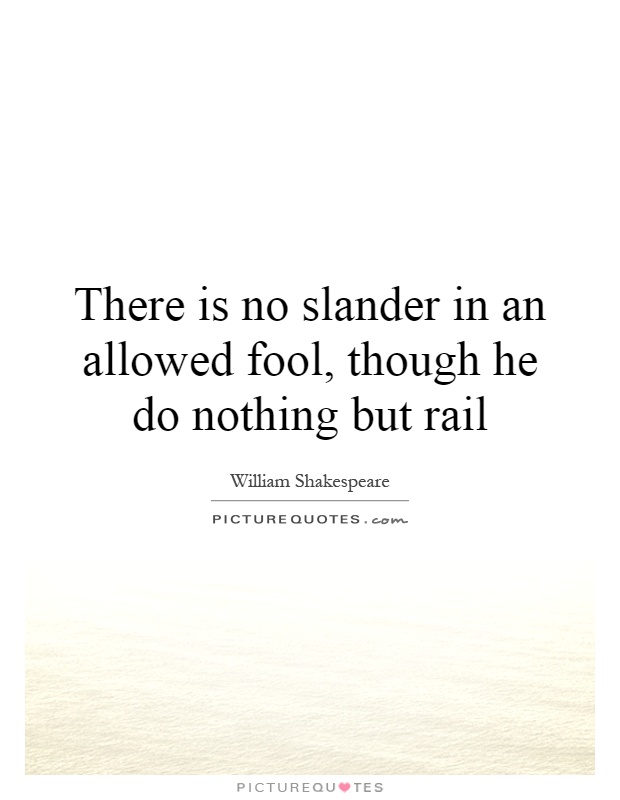There is no slander in an allowed fool, though he do nothing but rail

There is no slander in an allowed fool, though he do nothing but rail
In the world of William Shakespeare, fools often played a significant role in his plays. These characters were not just there for comic relief, but also served as a voice of reason and truth in a world filled with deceit and manipulation. One of the most famous quotes regarding fools comes from his play "As You Like It," where he writes, "There is no slander in an allowed fool, though he do nothing but rail."This quote speaks to the idea that fools, despite their often outrageous behavior and harsh words, are not held to the same standards as others when it comes to speaking the truth. In Shakespeare's time, fools were often given the freedom to speak their minds without fear of repercussions because they were seen as simple-minded and harmless. However, this also meant that they were able to say things that others could not, shining a light on the hypocrisy and corruption of those in power.
In many of Shakespeare's plays, the fool serves as a mirror to the other characters, reflecting their flaws and shortcomings back at them. By allowing the fool to speak freely and openly, Shakespeare was able to critique the society in which he lived and highlight the injustices and inequalities that existed. The fool's words may have been harsh and biting, but they were often the most honest and insightful in the play.












 Friendship Quotes
Friendship Quotes Love Quotes
Love Quotes Life Quotes
Life Quotes Funny Quotes
Funny Quotes Motivational Quotes
Motivational Quotes Inspirational Quotes
Inspirational Quotes